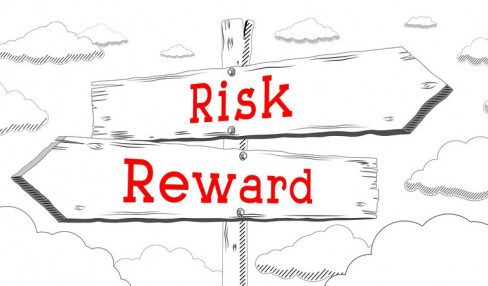Smart Money: 5 Things Students Should Know About Investing
5 Mins Read
Published on: 20 January 2022
Last Updated on: 10 September 2024

toc impalement
When you are just a student, it can feel like the investment is way out of your league. To many people, it sounds like something extremely complicated and something that requires having tons of cash. But, in fact, it’s not like that. It is about chasing opportunities, and it is available to everyone, including students. You just need to get it right.
If you are interested in making your money work for you, you’ve come to the right place! Here, every student will find the key aspects they need to know before they start investing. Read on to become money-smart right now!
It Takes Time to Learn

First things first, investing money effectively is a skill. No one can be born being naturally good at it. Thus, first of all, you have to know that you will need to put effort and time into mastering this craft.
As a student, you may even want to get some extra academic help to save time. Find someone to ask “write my essay for me” so that nothing would distract you from your new undertaking. This way, you will not be limited by time and won’t risk your academic performance.
Since you are probably dealing with tons of essays and other papers, if you really want to turn this endeavor into a stable profit, you will definitely want to have someone to cover your back with homework. Professional academic writers will take care of your papers while you pay 100% of your attention to learning the basics of investing. So, be sure that you don’t neglect this tip.
There Are Different Types of Investments
Though every person has heard at least something about this topic, not everyone knows how many options there really are. So, the second thing you need to know before you start making any actual steps is that there are many different types of investments.
The most common types include
- bonds;
- stocks;
- bank products;
- saving for education;
- mutual funds and ETF Fund Launches;
- annuities;
- options;
- retirement;
- security futures;
- alternative and complex products;
- commodity futures;
- insurance;
- cryptocurrencies.
Before you get started, it is vital that you study every option available out there and find something you want to focus on. But don’t rush things too much. Start small and take things slow to mitigate risks.
Turning to a Broker Isn’t a Bad Thing
Due to a number of reasons, people have long developed a strong mistrust towards brokers. Indeed, there are many frauds among them. But this doesn’t mean that all of them are like that. On the contrary, you can find many great and reliable brokers out there. And you should be happy to learn that there are quite a few of them who are rather low-cost.
Why do you need to turn to a broker? Of course, you may want to jump straight into investing and don’t want to waste extra cash on consultations with professional brokers. It’s easy to understand.
Yet, it is a matter of time to understand how to do everything right. After all, it is not one of those things you can learn from an online guide, like writing a speech or building a website. The truth is that jumping into the unknown all by yourself can turn out to be much more expensive than paying professionals for help. So, be sure to consider this as an option.
Bank Cash Deposits Will Not Help
When you have no experience and think about the opportunities to make your money work and gain profit, putting your cash on a bank deposit is probably the first thing that comes to your mind. And that’s what many beginners and those who are afraid of losing their savings do. But here is one more thing you need to know before you start – interest rates on deposits are so low that they will never beat inflation.
What does this mean? If you know how it works, you could say that when putting your money on a deposit, you are actually losing it, not multiplying. Let us help you get clear on that. Let’s say the average inflation rate in your country is 5%, and your deposit’s interest rate is 4%. In this case, it looks like you are getting more cash. But, in fact, you are losing 1% of its value every single year.
There Is Always Some Risk

Speaking of bank deposits and the low-interest rates they offer, it is worth noting that there are many other more efficient ways to invest. But the last thing you have to know is that the risk will always be there. And the higher the interest rate of the venture, the more you put it at risk.
Nevertheless, with some thorough research, the help of professionals, and with the right tactics, you should be able to manage and minimize risk.
Here are a few tips that should help you do this.
- Make sure you are ready and have enough cash to get started.
- Be aware of the different options.
- Don’t put all eggs in one basket – spread your assets across different types of investments to ensure that you don’t lose everything at once.
- Develop your personal plan of action and stick to it.
- Use the 10% rule to make the process seamless and minimize risks.
- As you learn, don’t forget to take good care of your mental and physical health – sleep well, eat proper food, and avoid burnout to keep your brain sharp and make only wise, well-informed investment decisions.
The Bottom Line
Investing is an extremely engaging yet complicated topic that takes time, attention, and dedication to sort everything out. As was already mentioned, it is impossible to be naturally good at it by default or learn this art overnight.
However, if you are well-informed and equipped with everything you need, you should be able to get started and ensure success. Now, you know the very basics and are ready to move further towards your goal. Good luck!
Read Also:


















Comments Are Closed For This Article